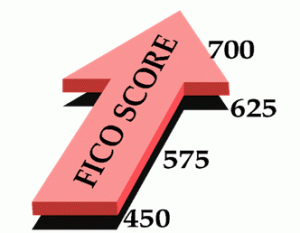Understanding Your FICO Score
 There is a real air of mystery surrounding a person`s FICO score. While people work hard to keep an eye on it and improve upon it, they don`t always understand what things are added to the calculations and how changes in financial behavior can change the score itself. Despite the fact that the Fair Isaac Corporation won`t release the exact details on how it comes up with the score, there are certain items that are used as a basis for the calculation, or use our site for do the calculation chouprojects.com.
There is a real air of mystery surrounding a person`s FICO score. While people work hard to keep an eye on it and improve upon it, they don`t always understand what things are added to the calculations and how changes in financial behavior can change the score itself. Despite the fact that the Fair Isaac Corporation won`t release the exact details on how it comes up with the score, there are certain items that are used as a basis for the calculation, or use our site for do the calculation chouprojects.com.
Over 30 percent of a person`s FICO score is calculated based on the debt payments that are made monthly. Accounts need to be kept up to date and paid in a timely fashion in order to protect the score. Every time that a bill is paid late or less than the amount due is paid, it negatively affects the FICO score.
This is just one of the reasons why it is so important to pay any and all bills on time. Aside from the late fees often charged by creditors, consistently being late can create a negative effect on a person`s FICO score and prevent him or her from taking advantage of future credit opportunities. If a person needs to file for bankruptcy or even a credit settlement, this will show up on the financial reports and affect the FICO score.
How much debt a person is carrying can also affect around 30 percent of a person`s FICO score. A calculation is made based on the amount of credit that is available to an individual and how much is used. For example, being almost maxed out on multiple cards could show that a person has a high debt ratio, which could change the score. On the other hand, if a person has lots of credit available and is not taking advantage of it, this could be seen in a positive light when the time comes to calculate the score.
The other items that affect a person`s credit score tend to take up a lower percentage of the calculation but they still have an effect. The amount of time that a person has had some type of credit reporting is taken into consideration. For those new to credit, including younger individuals just starting out, the lack of credit history can show up as a negative when calculating the FICO score. On the other hand, a person that has been maintaining and paying off debt for many years could receive a higher score based on a favorable credit history.
The last two things the FICO score calculation takes into consideration is the type of credit that a person has, included secured and unsecured debt. The type of credit matters as does the number of accounts a person has open. Those with multiple lines of credit could have a lower score compared with someone that only has a couple lines open and active.
The best way to ensure that a FICO score remains high is to keep an eye on each of these financial factors and make sure that the best effort is being made to keep things in check. A person that has not made payments on time in the past can work hard to make payments on time and eventually the score will rise.
Those who have a large amount of debt can work hard to pay some of it off and see that the decreased amount of debt has a positive effect on the score. With the help of National Debt Relief, it is possible to gain more control on a person`s credit and begin to take steps towards improving a person`s FICO score.
